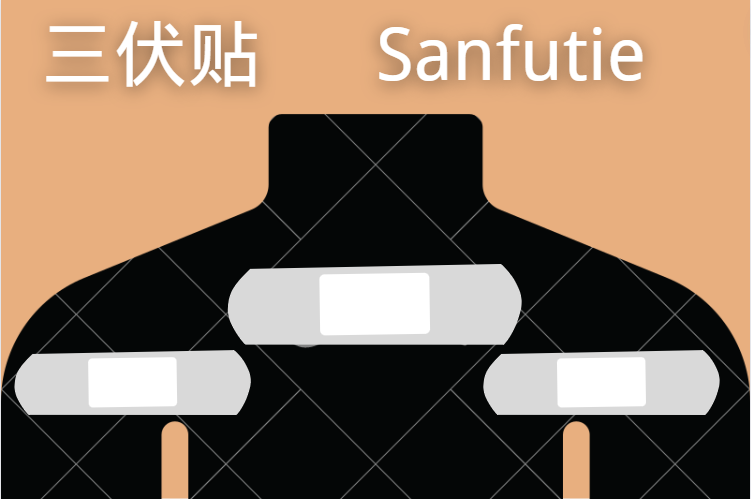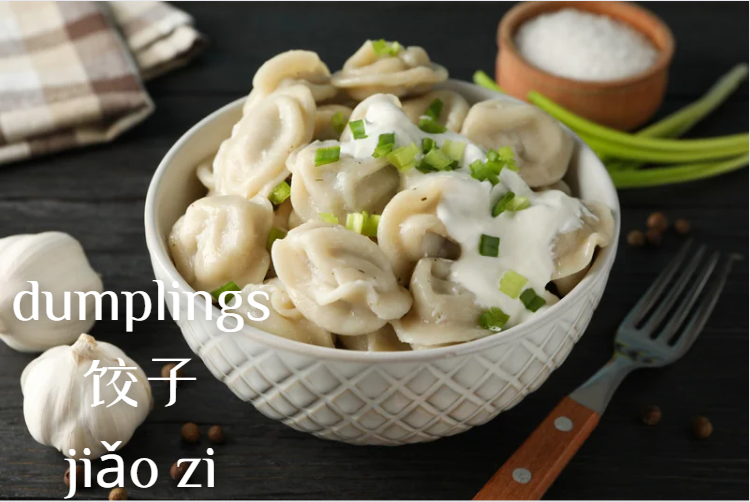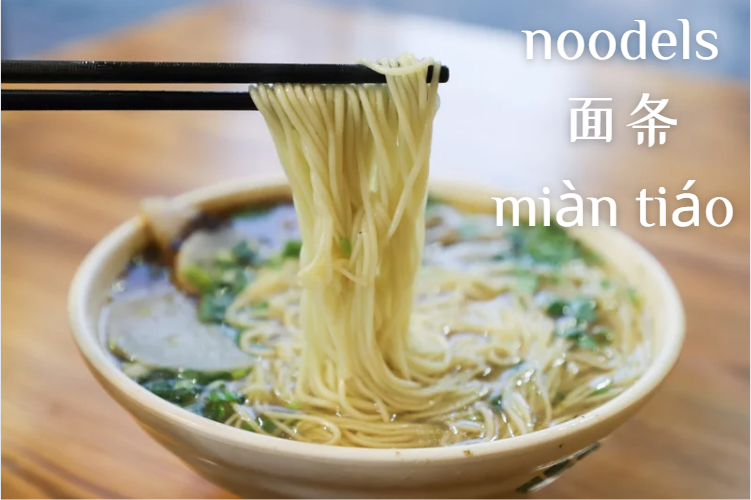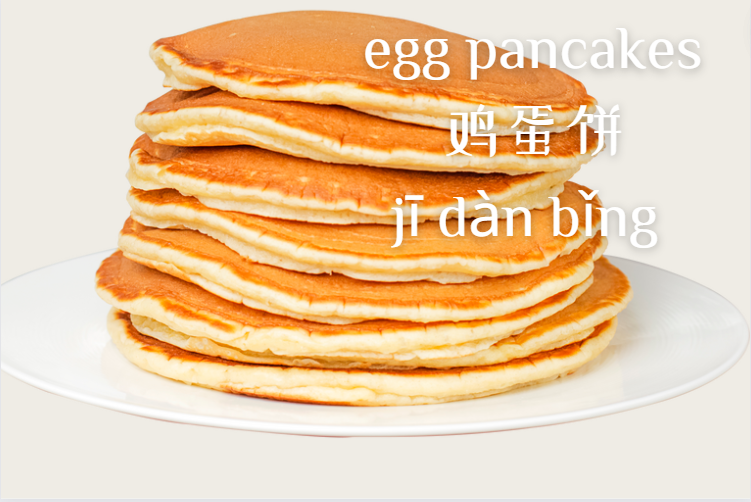Exploring Traditional Remedies for Spending Days in Sanfu Days
In the Chinese lunar calendar, based on ancient Chinese dates designated by the 10 Heavenly Stems and 12 Earthly Branches, "Sanfu" refers to the three ten-day periods with the highest and most humid temperatures in a year. They are called toufu or chufu (mid-July), zhongfu (late July to early August), and mofu (mid-August) of which zhongfu may last for 20 days. Generally, sanfu falls between the solar terms of Lesser Heat and the End of Heat, which is usually between mid-July and mid-August, while the specific dates vary each year. In 2023, the toufu period is from July 11th to July 20th, lasting for 10 days; the zhongfu period is from July 21st to August 9th, lasting for 20 days; and the mofu period is from August 10th to August 19th, also lasting for 10 days. Here are some traditional ways to spend sanfu days.
Applying Sanfutie
Sanfutie is a plaster or bandage made from Chinese herbal medicines, which is applied on the back or neck. According to TCM (Traditional Chinese Medicine), using sanfutie during the hottest summer period can effectively treat some diseases that often occur during the winter, such as cough, asthma, and arthritis. This is because TCM follows the theory of Yin and Yang, two essential elements in the human body, and keeping their balance is crucial for health. Sanfutie contains hot-natured drugs that improve Yang energy, making it less susceptible to the cold in winter. This helps to regulate the balance of Yin and Yang in the body, following the Chinese credo “冬病夏治(dōng bìng xià zhì), which means “winter disease, summer cure”.

Eating Dumplings during toufu
There's a saying, “好吃不过饺子(hǎo chī bú guò jiǎo zi)”, meaning nothing beats the taste of dumplings. Why do we eat dumplings during toufu? It's because the hot weather can cut appetite. Dumpling fillings can include ingredients like green beans, winter melon, and tomatoes, which have a cooling effect to beat the summer heat. Besides, ingredients like ginger, pepper, and chili can be added to increase appetite. Moreover, in the traditional Chinese culture, toufu is one of the most important periods of the year, while dumplings symbolize accumulating wealth because of their gold-ingot shape. Thus, eating dumplings at that time has an auspicious meaning.

Eating Noodles during zhongfu
As the proverb goes, “热在中伏(rè zài zhōng fú)”, the heat peaks during zhongfu. Zhongfu is the hottest period of the year, and it feels like being trapped in a steamer and falling into exhaustion and loss of appetite. During such stuffy days, having noodles in soup can lead to sweating heavily. It helps to remove dampness and coldness from the body, thus preventing heatstroke and making us refreshing. In addition, the smooth texture of the noodles, along with ingredients like garlic and scallions, helps to relieve the loss of appetite during the hot weather.

Having Egg Pancakes during mofu
Mofu marks the transition into early autumn, with the weather gradually cooling down. During this period, eating noodles and sweating excessively can possibly lead to catching a cold. Therefore, egg pancakes become a popular choice out of their simple and convenient cooking procedure. They are made with eggs, oil, and flour, which are abundant in nutrients. Compared to dumplings during toufu and noodles during zhongfu, they require no boil and result in minimal loss of nutrients. They have a soft texture, and this kind of delightful experience symbolizes bidding farewell to the summer heat.

Key Notes:
sān fú
三伏 sanfu days or dog days of summer: the three 10-day periods that are predicted to be the hottest days of the year
mēn rè
闷热 hot, humid, airless: feeling heat in an unpleasant or uncomfortable way
Xiao Ming: Xiao Hong, it is so hot and stuffy recently.
小明:小红,最近天气好闷热啊。
Xiǎo Míng: xiǎo hóng ,zuì jìn tiān qì hǎo mēn rè a.
Xiao Hong: Yes, it has recently entered Zhongfu days, which is the hottest period of the year.
小红:是呀,最近已经进入 “中伏”天了,这是一年中最热的时候。
Xiǎo Hóng: shì ya, zuì jìn yǐ jīng jìn rù "zhōng fú" tiān le, zhè shì yī nián zhōng zuì rè de shí hòu.
Xiao Ming: Can you tell me how to spend Zhongfu days?
小明:你可以告诉我怎么度过“中伏”天吗?
Xiǎo Míng: nǐ kě yǐ gào sù wǒ zěn me dù guò "zhōng fú" tiān ma?
Xiao Hong: Of course. As the saying goes, “头伏饺子二伏面,三伏烙饼摊鸡蛋(tóu fú jiǎo zǐ èr fú miàn ,sān fú lào bǐng tān jī dàn)”, you can eat some noodles in hot soup during Zhongfu.
小红:当然可以。俗话说,“头伏饺子二伏面,三伏烙饼摊鸡蛋”。在“中伏”天,你可以吃一些热汤面。
Xiǎo Hóng: dāng rán kě yǐ. sú huà shuō, "tóu fú jiǎo zǐ èr fú miàn, sān fú lào bǐng tān jī dàn". zài "zhōng fú" tiān, nǐ kě yǐ chī yī xiē rè tāng miàn.
Xiao Ming: But noodles in hot soup will make me feel hotter.
小明:可是,热汤面会让我感觉更热。
Xiǎo Míng: kě shì, rè tāng miàn huì ràng wǒ gǎn jué gèng rè.
Xiao Hong: It can help you get rid of damp heat and avoid heatstroke.
小红:这样做能帮助你排出湿热,避免中暑呀。
Xiǎo Hóng: zhè yàng zuò néng bāng zhù nǐ pái chū shī rè, bì miǎn zhōng shǔ ya.
Xiao Ming: Well, I see.
小明:好吧,我明白了。
Xiǎo Míng: hǎo ba, wǒ míng bái le.